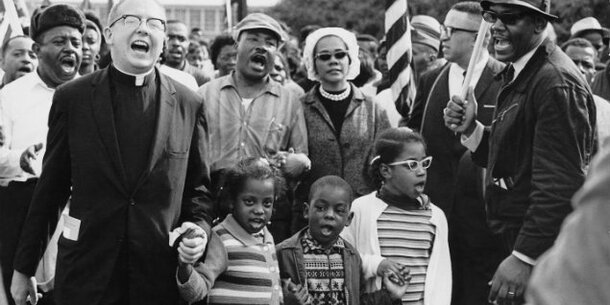Shirley Abrahamson became the first female justice on the Wisconsin Supreme Court in 1976. She served for 43 years, including as chief justice for nearly two decades. She was indisputably a giant of jurisprudence. She died Saturday at the age of 87.
What follows here is a short personal story intended both to honor her and also as a rejoinder to those who paint with an excessively broad brush in disparaging all political leaders. Yes, Virginia, there is a Santa Claus, and no, Virginia, not all politicians are [insert pejorative of choice].
Here is the scene: The year is 2008. It is a frigid, winter night in Madison, Wisconsin. I don’t pretend to recall the exact temperature, but there is no doubt in this Montana native’s mind that the figure was well below zero. Who am I in this story? I am but a very junior attorney at the Brennan Center. Then just a few years out of law school, I was even more of a nobody then than I am today. She, by contrast, was in her 32nd year on the Wisconsin Supreme Court. She, by contrast, was in her 12th year as that court’s chief justice. She, by contrast, had been described by the likes of Justice Ruth Bader Ginsburg as “the very best” of the “jurists I have encountered in the United States and abroad.”
Owing entirely to overlapping interests in state courts (she as a giant in them, and me as a neophyte writing about them) I had, prior to that 2008 night, had the privilege of participating in a few panel discussions and the like with Abrahamson. We often found ourselves in agreement, though not always. Circa 2008, Wisconsin was a strong competitor for a dubious distinction: ground zero for financial conflicts of interest in the courts. I was a tiny voice in that particular wilderness and consequently, spent a lot of time in Wisconsin.
Back to the night in question. Earlier that morning, I had spoken at an event in Milwaukee. Following the speech, I drove to Madison to spend the evening with my sister Kate. I had also scheduled a late afternoon meeting to mine Abrahamson’s estimable brain on recusal procedures. Early that afternoon, her clerk called and indicated that something had come up and Abrahamson wanted to know if she could call me later and perhaps we could meet that evening rather than that afternoon. Of course.
Hours passed. More hours passed. I changed out of my business suit and into sweats. It had been a full day and bedtime beckoned. Then, at 10:30pm my phone rang. “James, it’s Shirley.” She was still at the capitol and was now available for our meeting. She said she’d meet me outside so as to let me in a side door “to save time so you don’t have to go through security at this hour.” Naturally, I got confused in the pitch dark and the cold as I circled the enormous building on foot looking for that side door, knowing all the while that the chief justice, a woman then in her 70’s, was standing outside in the bitter cold, waiting on me as I frantically ran around the grounds trying to find the correct door. And when I did, there she was — standing out in the cold, waiting on this moronic junior lawyer who couldn’t even find the correct side door. She could not have been more gracious.
In chambers, she was as sharp on the substance as ever. That includes expressing her sharply pointed thoughts regarding an op-ed I’d written that she felt missed the mark. All the while, I kept my comments short, because I was certain that she needed to go home and that I was keeping her. She kept extending the conversation because the substance was so critically important to her.
Then, well after 11 pm, into her chambers strolled Justice Ann Walsh Bradley. The chief introduced us. Bradley wanted to know if the chief had read a memo that Bradley had apparently sent earlier that evening. The chief replied that she had seen the memo, but had not yet had a chance to review it, and that she would review it and send comments as soon as her meeting with me concluded.
Abrahamson was indisputably a giant. Me piling on in that assertion adds little to her legacy. The point of the anecdote, however, is that this is how professional she was, how much she cared about truth and law, and how committed to the cause of justice she was. All of this was true, even at the peak of her career, and even with a nobody like me.
As I departed, it really struck me that I was about to go to my sister’s place and crash. The chief was about to commence her review of Bradley’s memo. Bradley herself was similarly dedicated, and although I don’t know for certain, my sense was that she was going to wait in her chambers for the chief’s edits. This was not a special occasion. It was just another frigid night in a Wisconsin winter. And that random winter night exemplified the dedication of not only a jurisprudential giant, a trail-blazing woman, but a truly honorable public servant.
So when I think of Shirley Abrahamson, I will always think of her waiting out in the cold to let me in that side door. Why? Because that’s who she was. She was rare. She was special. And yet, she would also want us to know that there really are many public servants for whom government service is actually public service. In the most genuine sense.
James Sample is a professor at the Maurice A. Deane School of Law at Hofstra University and a former Brennan Center attorney.





